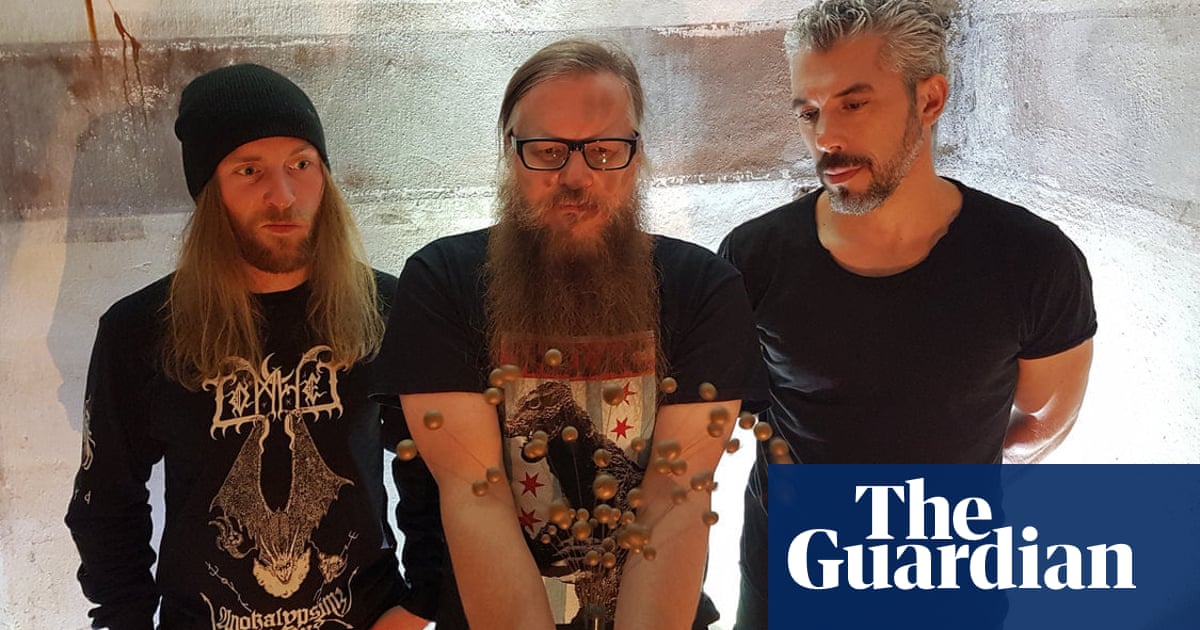
Fans usually age with the bands they love, but in recent months Johannes von Weizsäcker has seen the mosh pit at his gigs fill with an unusually youthful demographic.
For a large part of his 20s and 30s, the 46-year-old German singer-songwriter toured London backroom venues with the Chap, an experimental pop five-piece who remain as critically acclaimed as their commercial rewards are modest.
Now living in Berlin, Von Weizsäcker currently plays crammed concert halls filled with four- to 16-year-olds jumping up and down to songs that include Chamomile Tea, Bye Bye Nursery, and Builders Like to Drink Hot Chocolate. Baked Beans, comprising Von Weizsäcker and two other members of Berlin indie bands, play “post-punk for children” but which “adults are also allowed to like”.
Not only are the band in tin-can costumes discovering that family events pay better wages than indie clubs, they are also learning to appreciate a new fanbase: one that is refreshingly lacking in poseurs. “Kids will dance to anything, be it disco, punk, pop or rock,” said Von Weizsäcker. “They don’t feel they have to stick to one genre.”
In Germany, Baked Beans are the latest exponents of a prospering trend of “Kindie” bands that are wielding serious commercial clout in a music industry transformed by online streaming services.
The new wave ranges from the DIY ethos of Berlin one-man a capella band Bummelkasten to Unter Meinem Bett (Under My Bed), a series of compilation albums that feature respected bands recording songs for children. Then there’s the Hamburg trio Deine Freunde (Your Friends), who fill large concert venues with family-friendly hip-hop about homework and grandma’s secret stash of chocolate.
There are several reasons why the boom in such bands is happening now, and why the scene is flourishing, especially in Germany, according to Bent Schönemann, head of music and new business for Sony Music’s Europa label.
“On the one hand, you simply have all these musicians who all played in indie bands in the 90s and 00s who now have kids. And then you have all the fans who used to go to their gigs but are now tied to their homes because of childcare,” he said.
At family concerts put on by booking agency Koralle Blau, there is usually a children-only area in front of the stage, with parents watching their former idols from the back. Gigs usually start at 3pm and rarely last more than two hours, with an interval for a snack and toilet break.
Sebastian Tim, Koralle Blau’s founder, said he accidentally branched out into family entertainment in 2015 and found a niche that he hadn’t realised existed. In 2019, he put on 50 or so such concerts, and 2020 had got off to a promising start with Die Eule Findet den Beat (The Owl Finds the Beat), a “musical audio drama” – until the outbreak of Covid-19 in Europe. All his shows are now on hold until September, though he concedes that even that may be optimistic.
Schönemann, who was put in charge of expanding the company’s children’s music portfolio last April, said “Kindie” music had found particularly rich soil in Germany because of the country’s tradition of producing audio entertainment for children. His Europa label, which released Baked Beans’ debut album last year, used to specialise in Hörspiele or audio dramas such as those of Enid Blyton’s Famous Five.
As with music for grown-ups, he hastily added, the growing popularity of streaming services is also rapidly changing the way music is consumed in children’s bedrooms. In 2019, German families for the first time spent more money on children’s entertainment via streaming services than physical audio formats such as CDs – a gift now popular only with grandparents.












